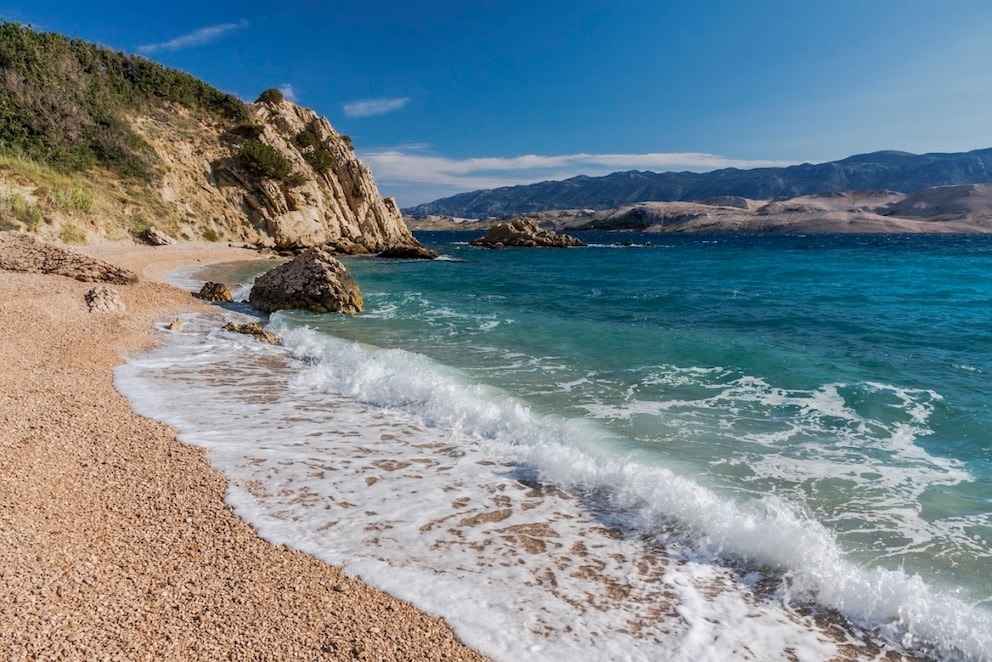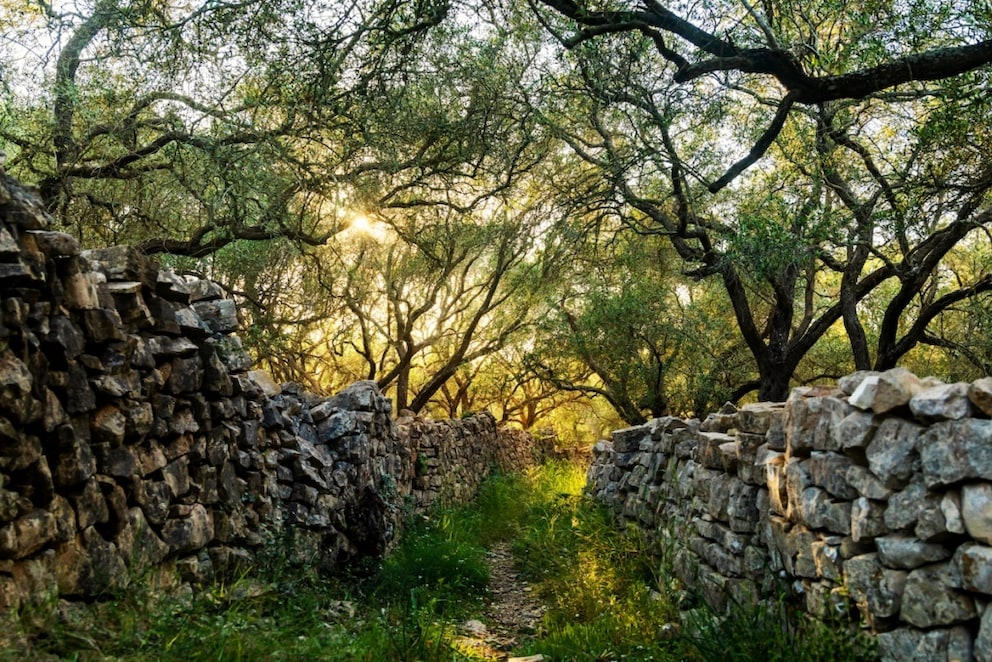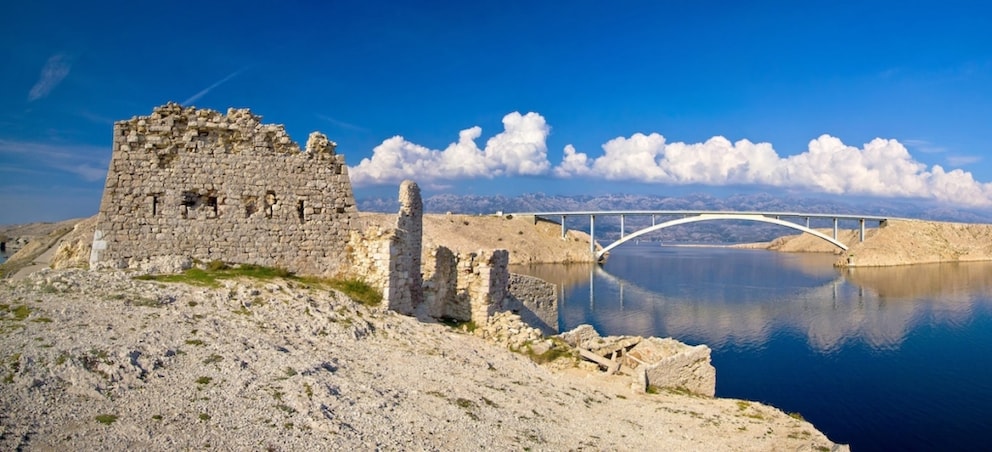May 25, 2025, 4:31 pm | Read time: 4 minutes
Our author had the opportunity to personally explore the Croatian island of Pag during a trip—and she highly recommends it as a travel destination! On this Adriatic island, there’s something for everyone, whether you’re looking to party, relax, seek adventure, or enjoy a peaceful family vacation.
Pag is a Croatian island in the northern Adriatic with a population of less than 9,000. Covering about 284 square kilometers, it is the fifth-largest island in the Adriatic. In addition to the historic old town of Pag and the well-known party destination Novalja, the island is home to numerous charming and sleepy villages. The landscape is diverse, and the local residents are known for being friendly and helpful.
Overview
Activities for All Ages on the Island of Pag
Pag offers a variety of leisure activities for all age groups. The crystal-clear, turquoise sea at the numerous beaches invites visitors to swim. Especially on hot days, the Adriatic here is refreshing. During the season, families can enjoy a large water trampoline at Prosika Beach, which tests agility and courage. Those looking to explore the nightlife should visit the famous Zrće party beach in Novalja—one of the largest party beaches in the world. The season here runs from May to September.

Also interesting: Albania instead of Croatia! Dhërmi is (still) a hidden gem
Nature, Hiking, and Other Highlights on Pag
Pag also impresses with its natural diversity. Hiking enthusiasts will find numerous routes through varied landscapes. The eastern part of the island is rocky and barren—often referred to as a “moon landscape.” Here, paths often lead to hidden coves with stunning beaches.

As an avid hiker, you can take many different routes on Pag. For example, in the Kolanjsko blato bird sanctuary between Kolan and Gajac, you can enjoy walks among rare bird species. The mysterious Paški trokut (“Pag Triangle”) is a geological formation discovered during surveying work. In the wonderful greenery of the Novaljsko polje fields near Novalja, you can experience more facets of the island’s nature. Particularly noteworthy are the olive groves of Lun in the north: This centuries-old olive garden invites you to take leisurely walks.
BILD Reisen: Discover the best hotels on Krk now!

The History of Pag
History enthusiasts will also find much to explore on Pag, as the island is home to numerous fascinating relics from the past:
- The Fortica Ruins near Miškovići, close to the Pag Bridge, were built in the 17th century to protect merchant ships from pirates. According to legend, King Béla IV of Hungary was hidden here from a Mongol attack.
- The Sv. Jurja Fortress near Caska is a recognized cultural monument.
- Another fortress is Svetojanj near Novalja—it likely dates back to late antiquity. Today, only rough outlines of the former fortress are visible.
- The Roman Aqueduct in Novalja (“Talijanova buža”) was part of the water supply during Roman times and can now be visited as an underground museum.
- Also built by the Romans was the legendary sunken city of Cissa in the bay of Caska. However, it sank into the sea after an earthquake. Today, a beautiful beach and the fish observation tower attract visitors to this spot.


The most underrated travel destinations in Europe for 2025

Ostuni — an Insider Tip in the South of Italy

Why the Maremma in the South of Tuscany is Definitely Worth a Visit
Paški sir – the Spicy Sheep Cheese of Pag
Pag is also famous for its local sheep cheese. The “Paški sir” owes its special flavor to Pag’s dry landscape: While little grass grows here, there are plenty of salty wild herbs that the sheep feed on. These herbs give the cheese its characteristically spicy taste. Additionally, the cheese is predominantly made by hand in the traditional way—a true piece of culinary heritage.

